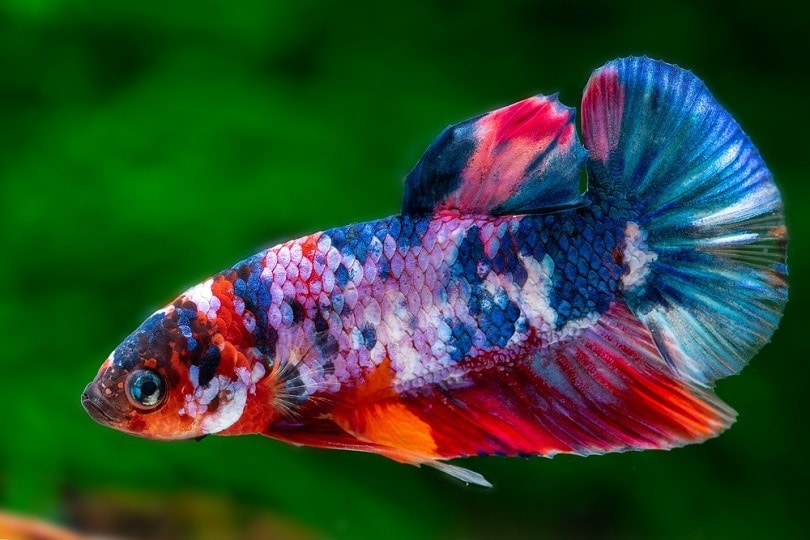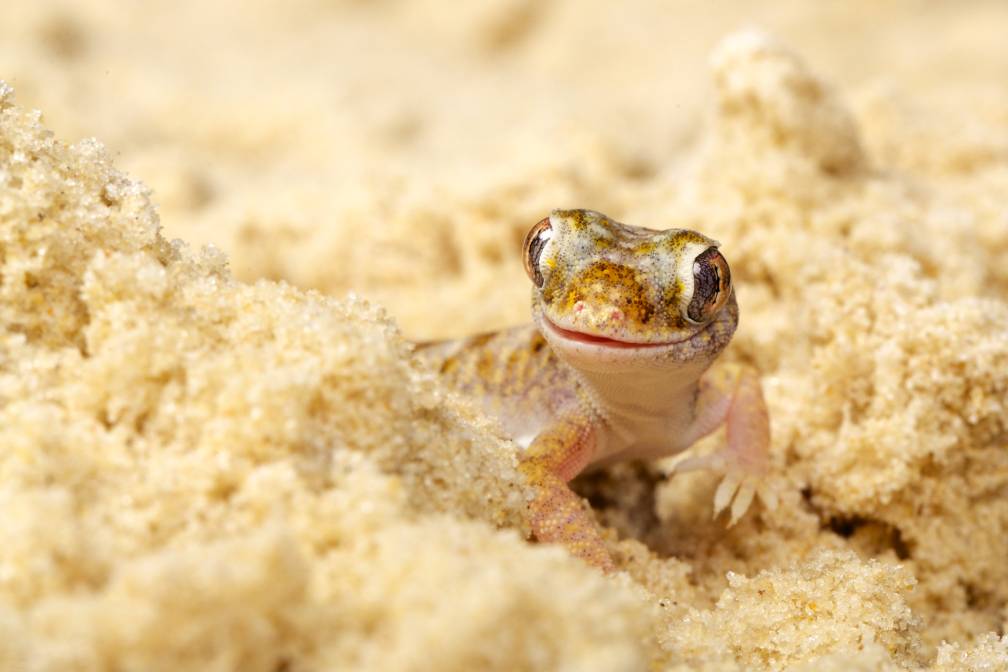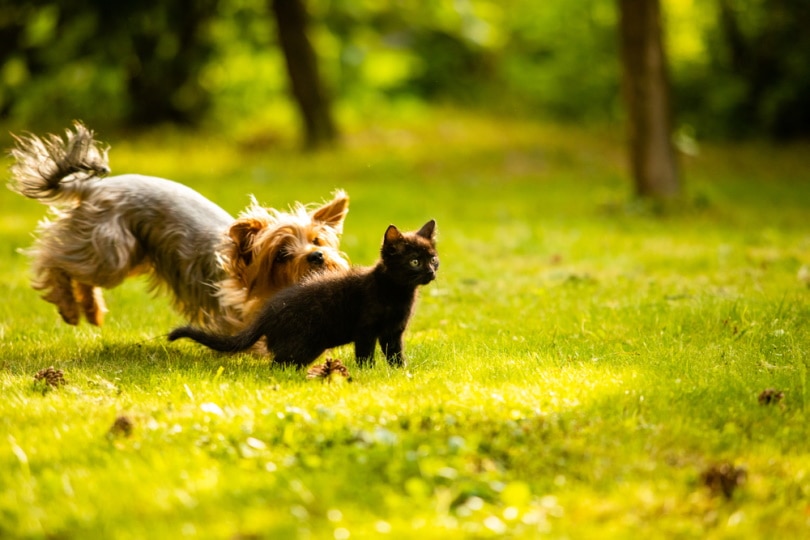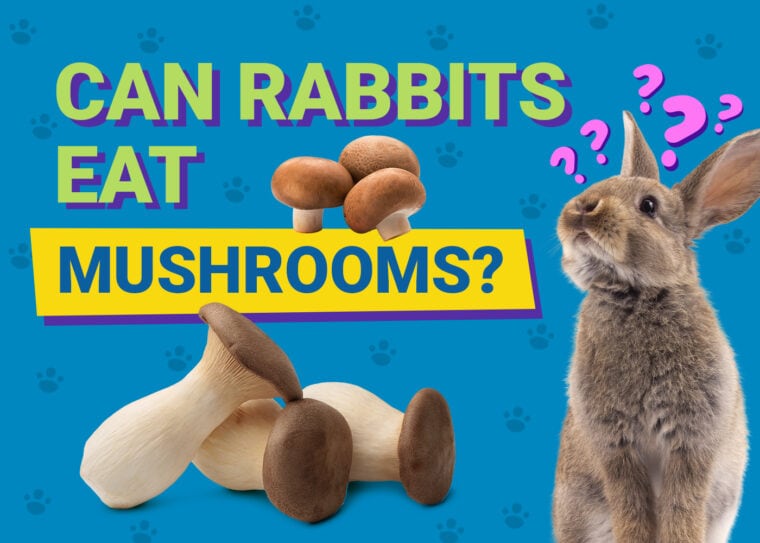
Rabbits are among the most well-known vegetarians in the animal kingdom. Especially renowned for their appetites for carrots and greens, these fuzzy friends seem to have no end to their enjoyment of vegetables.
But can rabbits enjoy all the same foods as human vegetarians? Definitely not! This is especially true for any type of mushroom: Even common button mushrooms can be harmful or fatal when eaten by a rabbit.
Read on to learn why you should never feed mushrooms to your rabbit and what to do if your rabbit has accidentally eaten mushrooms.
No! Rabbits Cannot Eat Mushrooms
Rabbits absolutely cannot eat mushrooms. Wild mushrooms are particularly dangerous, but even store-bought mushrooms are inappropriate for your rabbit. Don’t feed mushrooms to your rabbit, and keep a close eye on them while outdoors to make sure they don’t eat any wild mushrooms.
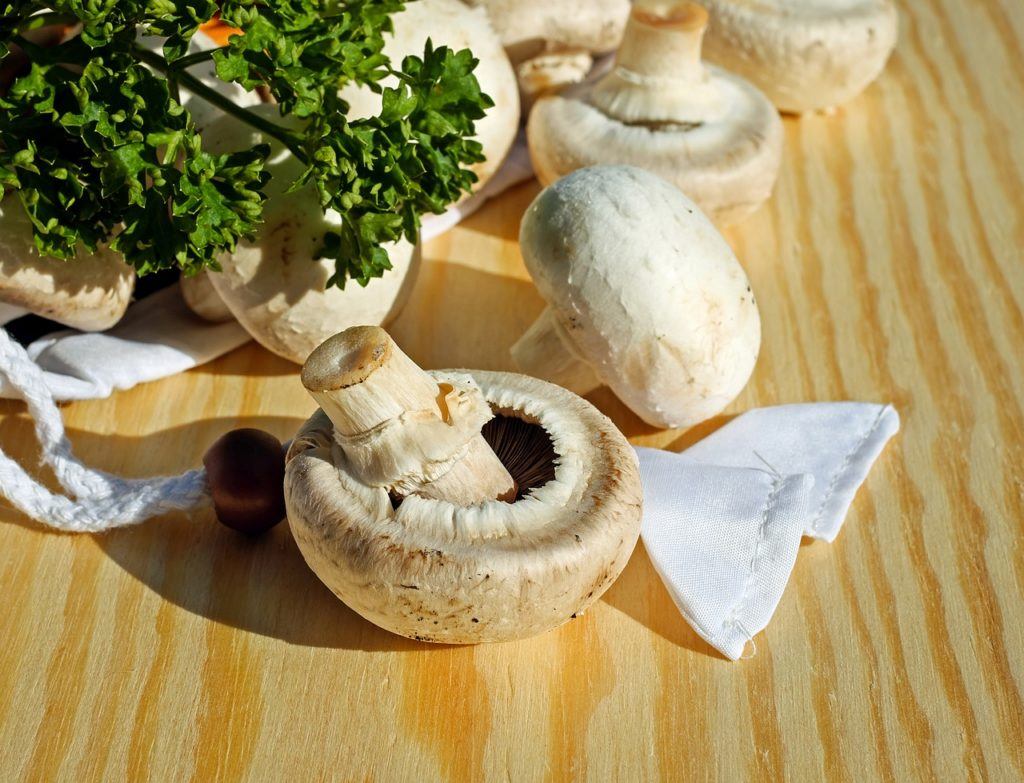
Are There Any Types of Mushrooms Rabbits Can Eat?
While the word “mushroom” might only suggest images of culinary mushrooms—button, portabella, or shiitake—it refers to any fungus with a fruiting body. Due to how difficult mushroom identification can be, it’s difficult to state with any certainty whether there may be one type of mushroom that rabbits can eat.
Common mushrooms and wild mushrooms have both been responsible for poisoning or killing rabbits. Cooking mushrooms will not make them safe for rabbits, nor will any other preparation. In short, there is no type of mushroom that is safe to feed to your rabbit.
Dangers of Mushrooms for Rabbits
The U.S. Food and Drug Administration, in its Foodborne Pathogenic Microorganisms and Natural Toxins Handbook, gives the context for mushroom poisoning.
Eight toxins have been identified as being involved in mushroom poisoning: amanitin, gyromitrin, orellanine, muscarine, ibotenic acid, muscimol, psilocybin, and coprine. Both raw and cooked mushrooms can be a cause of mushroom poisoning, as their toxic compounds are not destroyed by heat.
Effects of mushroom poisoning most commonly include organ damage, neurological damage, vomiting, and diarrhea. Known for being especially difficult to treat, mushroom poisoning most often occurs because of accidental ingestion of a toxic species.
What does all of this mean for your rabbit? While we are unaware of any studies that have specifically targeted mushroom poisoning in rabbits, veterinarians strictly prohibit feeding mushrooms to your rabbit because of their ill effects. Even mushrooms that are non-toxic to humans can still seriously harm your rabbit’s sensitive digestive system.
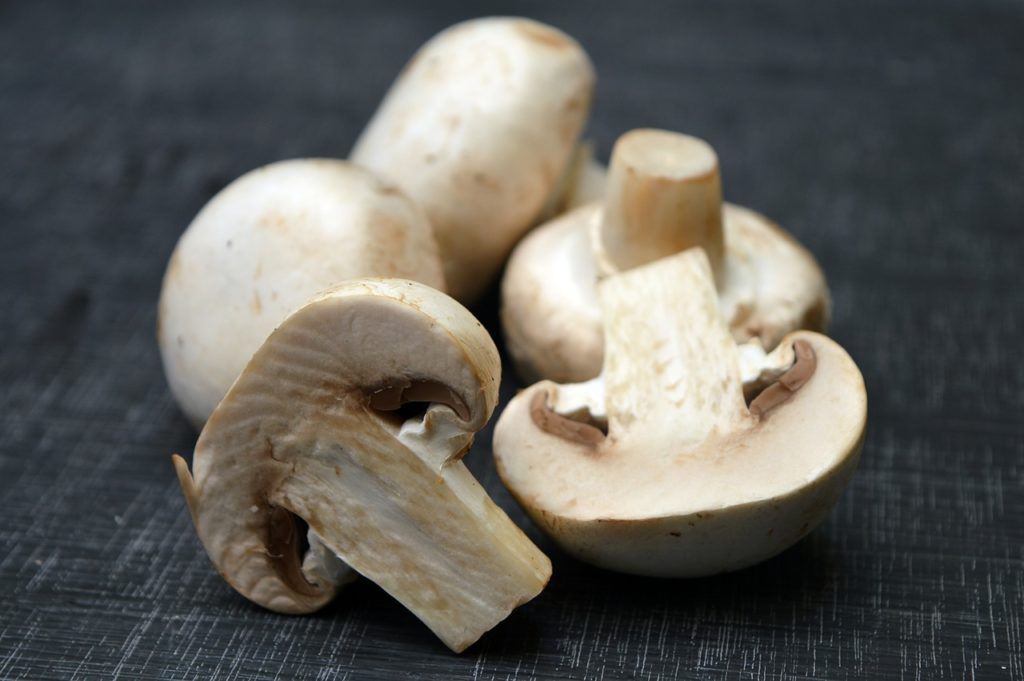
What to Do If Your Rabbit Eats Mushrooms
If you and your rabbit are outdoors and they choose to eat a wild mushroom, it’s essential that you take quick action to prevent catastrophic consequences. Call your vet immediately, and bring a sample of the mushroom with you to the vet. Mushroom poisoning can have a rapid onset and must be treated as soon as possible to prevent any harm to your rabbit.
Even if your rabbit has managed to eat a culinary mushroom while in your home, you should contact your vet right away. While much less likely to prove fatal than wild mushrooms, common household mushrooms can still cause terrible gastrointestinal distress for your rabbit. Left unchecked, this can quickly lead to sickness or death.
Summary
Mushrooms are one of the very few vegetables that rabbits absolutely should not eat. Whether cultivated or wild, they can have disastrous effects on your rabbit’s health. Never try feeding mushrooms to your rabbit, and if your rabbit does eat a mushroom while you’re not looking, call your vet immediately for assistance.
Related Read:



